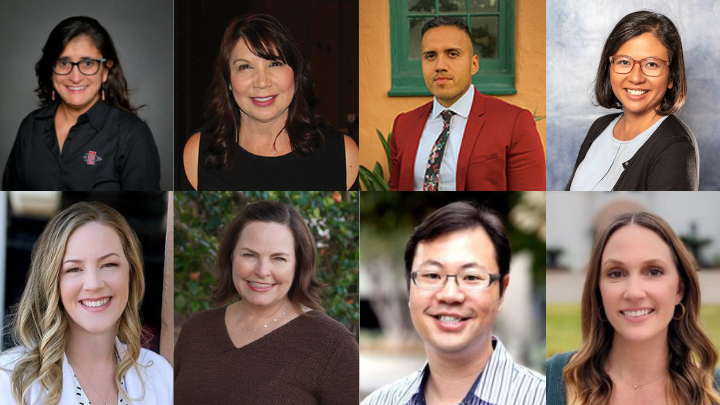New projects by SDSU researchers aim to improve patient care, outcomes
The three new projects focus on diabetes related research, adverse pregnancy outcomes and social screenings as part of their work with the Imperial County Clinical Research Network.

San Diego State University public health and nursing faculty members in Imperial Valley are collaborating to establish a clinical research site within Innercare, a private, nonprofit primary care organization.
The research efforts are part of the Imperial County Clinical Research Network for Health Equity, co-led by Guadalupe X. Ayala, SDSU distinguished professor of public health in the College of Health and Human Services, and Yvonne Bell, president and CEO of Innercare.
The network, funded by the National Institute on Minority Health and Health Disparities (NIMHD), supports three projects: identify strategies to improve diabetes control; identify what factors are related to adverse pregnancy outcomes; and examine the best strategies for collecting social needs data.
“The projects are helping to create the infrastructure for conducting clinical research with Innercare,” said Ayala. She said similar activities are occurring at a second site at the University of Hawaii at Manoa.
The first pilot project focuses on increasing access to continuous glucose monitoring in primary care settings to improve A1C levels among patients with Type 2 diabetes. SDSU faculty members leading this project include Shiloh Williams, SDSU Imperial Valley nursing assistant professor and Emily Schmied, SDSU public health associate professor.
The second project, led by Donna Balsam, assistant professor of nursing in the College of Health and Human Services, examines factors associated with adverse pregnancy outcomes using electronic health record data.
With the support of an administrative supplement fund, the third project, co-led by Benjamín Aceves, assistant professor of public health, and Shih-Fan Lin, research associate professor of public health, works to determine the best strategies for conducting social screenings, a type of information that identifies a person’s circumstances and barriers to good health.
“The third project allows us to have a deeper sense and knowledge of how to identify factors that influence a person’s health and healthcare,” said Aceves. “Through our interviews, we learn our interviewees’ history and have a better understanding of their own experiences in primary care settings in the past, as well.”
There is still much that isn't known about patients’ needs, said Aceves. The researchers hope once the findings are formed, there will be a better understanding and way of how primary care professionals can engage with their patients.
“By working alongside the University of Hawaii, we aim to gather a common set of data that can be applied broadly to other communities in different places, but that may have similar health risk factors,” said Lin.
As each project is in its early stages, the team will continue to collaborate with primary care providers and other team members at Innercare to gain these insights.



